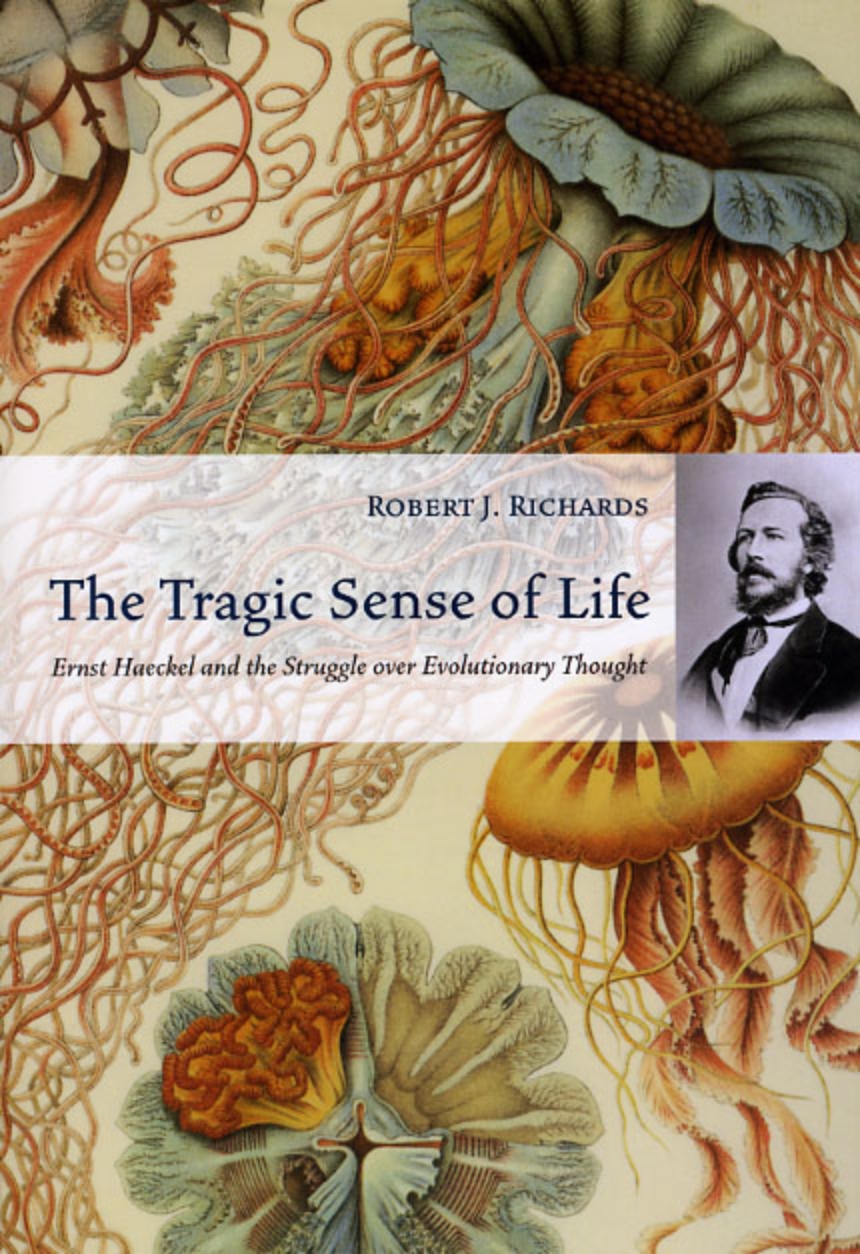The Tragic Sense of Life
Ernst Haeckel and the Struggle over Evolutionary Thought
The Tragic Sense of Life
Ernst Haeckel and the Struggle over Evolutionary Thought
Prior to the First World War, more people learned of evolutionary theory from the voluminous writings of Charles Darwin’s foremost champion in Germany, Ernst Haeckel (1834–1919), than from any other source, including the writings of Darwin himself. But, with detractors ranging from paleontologist Stephen Jay Gould to modern-day creationists and advocates of intelligent design, Haeckel is better known as a divisive figure than as a pioneering biologist. Robert J. Richards’s intellectual biography rehabilitates Haeckel, providing the most accurate measure of his science and art yet written, as well as a moving account of Haeckel’s eventful life.
Reviews
Table of Contents
List of Illustrations
Preface
1. Introduction
The Tragic Source of the Anti-Religious Character of Evolutionary Theory
2. Formation of a Romantic Biologist
Early Student Years
University Years
Habilitation and Engagement
3. Research in Italy and Conversion to Darwinism
Friendship with Allmers and Temptations of the Bohemian Life
Radiolarians and the Darwinian Explanation
Appendix: Haeckel’s Challenger Investigations
4. Triumph and Tragedy at Jena
Habilitation and Teaching
Friendship with Gegenbaur
For Love of Anna
The Defender of Darwin
Tragedy in Jena
5. Evolutionary Morphology in the Darwinian Mode
Haeckel’s Generelle Morphologie der Organismen
Haeckel’s Darwinism
Reaction to Haeckel’s Generelle Morphologie
Conclusion
Appendix: Haeckel’s Letter to Darwin
6. Travel to England and the Canary Islands: Experimental Justification of Evolution
Visit to England and Meeting with Darwin
Travel to the Canary Islands
Research on Siphonophores
Entwickelungsmechanik
A Polymorphous Sponge: The Analytical Evidence for Darwinian Theory
Conclusion: A Naturalist Voyaging
7. The Popular Presentation of Evolution
Haeckel’s Natural History of Creation
Conclusion: Evolutionary Theory and Racism
8. The Rage of the Critics
Critical Objections and Charges of Fraud
Haeckel’s Responses to His Critics
The Epistemology of Photograph and Fact: Renewed Charges of Fraud
The Munich Confrontation with Virchow: Science vs. Socialism
Conclusion
9. The Religious Response to Evolutionism: Ants, Embryos, and Jesuits
Haeckel’s Journey to the Tropics: The Footprint of Religion
“Science Has Nothing to Do with Christ”—Darwin
Erich Wasmann, a Jesuit Evolutionist
The Keplerbund vs. the Monistebund
The Response of the Forty-six
Conclusion
10. Love in a Time of War
At Long Last Love
The World Puzzles
The Consolations of Love
Second Journey to the Tropics—Java and Sumatra
Growth in Love and Despair
Lear on the Heath
The Great War
11. Conclusion: The Tragic Sense of Ernst Haeckel
Early Assessments of Haeckel Outside of Germany
Haeckel in the English-Speaking World at Midcentury
Haeckel Scholarship in Germany (1900–Present)
The Contemporary Evaluation: Haeckel and the Nazis Again
The Tragedy of Haeckel’s Life and Science
Appendix 1: A Brief History of Morphology
Johann Wolfgang von Goethe (1749–1832)
Karl Friedrich Burdach (1776–1847)
Lorenz Oken (1779–1851)
Friedrich Tiedemann (1781–1861)
Carl Gustav Carus (1789–1869)
Heinrich Georg Bronn (1800–1862)
Karl Ernst von Baer (1792–1876)
Richard Owen (1804–1892)
Charles Darwin (1809–1882)
Appendix 2: The Moral Grammar of Narratives in the History of Biology—the Case of Haeckel and Nazi Biology
